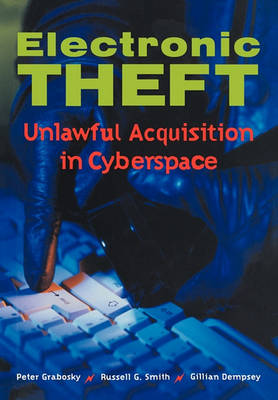When this book was first published in 2001, the convergence of communications and computing had begun to transform Western industrial societies. Increasing connectivity was accompanied by unprecedented opportunities for crimes of acquisition. The fundamental principle of criminology is that crime follows opportunity, and opportunities for theft abound in the digital age. Electronic Theft named, described and analysed the range of electronic and digital theft, and constituted the first major survey of the field. The authors covered a broad list of electronic misdemeanours, including extortion, defrauding governments, telephone fraud, securities fraud, deceptive advertising and other business practices, industrial espionage, intellectual property crimes, and the misappropriation and unauthorised use of personal information. They were able to capture impressively large amounts of data internationally from both scholarly and professional sources. The book posed and attempted to answer some of the pressing questions to do with national sovereignty and enforceability of laws in 2001.
- ISBN13 9780521152860
- Publish Date 22 July 2010 (first published 2 April 2001)
- Publish Status Active
- Out of Print 31 January 2023
- Publish Country GB
- Imprint Cambridge University Press
- Format Paperback (US Trade)
- Pages 246
- Language English
